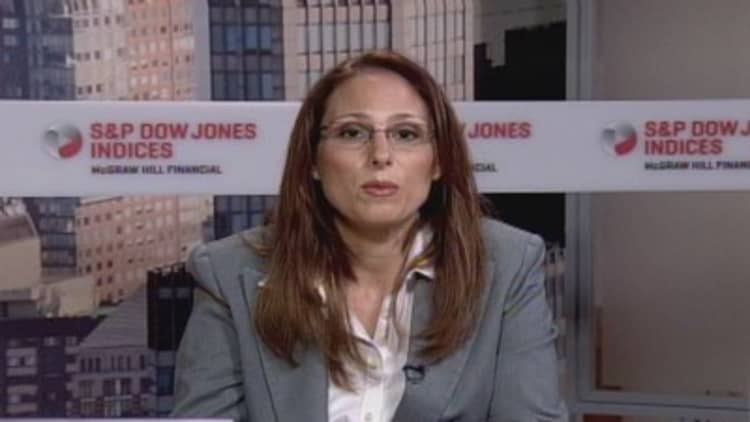
A recent report released by the White House, the National Climate Assessment Report, says the effects of climate change are already being experienced across the United States. And according to one commodities expert, global warming has turned up the heat on agriculture prices—which could be leading to higher costs at the grocery store.
"More than 80 percent of the temperature rise has occurred since 1980, and with that has come some price increases," wrote Jodie Gunzberg, global head of commodities at S&P Dow Jones Indices.
Zeroing in on the S&P GSCI Agriculture index, she finds that it has increased by an average of "16 basis points per summer quarter (Q3), which could be due to climate change."
Read More Lloyd's warns on climate change impact
But when we follow costs from the farm to the table, the picture gets a bit more complicated.
"Prices you see at the grocery story may very well be increasing from global warming," Gunzberg wrote. However, she adds that "the food companies have many different ways to mitigate the price rise. So an example is if we go to the grocery store and we see a label that says, 'May contain soybean oil, canola oil or palm oil,' the reality is that it contains the cheapest oil. And that's substitution that keeps the prices down for everyday consumers like you and me."
Additionally, "companies have better ways to substitute [crops] from different regions so that it can help keep the prices of food down when we go shopping," Gunzberg said on Thursday's "Futures Now."
Food and beverage prices certainly seem to be rising faster than other costs faced by consumers. The consumer price index for urban consumers rose 26 percent from March 2004 to March 2014 (the latest available data set), but food and beverage prices climbed 30 percent in that time. According to that index, food and beverage prices are double what they were in September 1989.
Read More Food bill rising? At least you're not French
So how can consumers brace for the prospect of food inflation going forward? Well, there's always the option of going long the commodities themselves.
"You don't need to be poorer by shopping for food and may offset this inflation with a basket of commodities," Gunzberg suggests.
—By CNBC's Alex Rosenberg.
Watch "Futures Now" Tuesdays and Thursdays at 1 p.m. ET exclusively on FuturesNow.CNBC.com!



